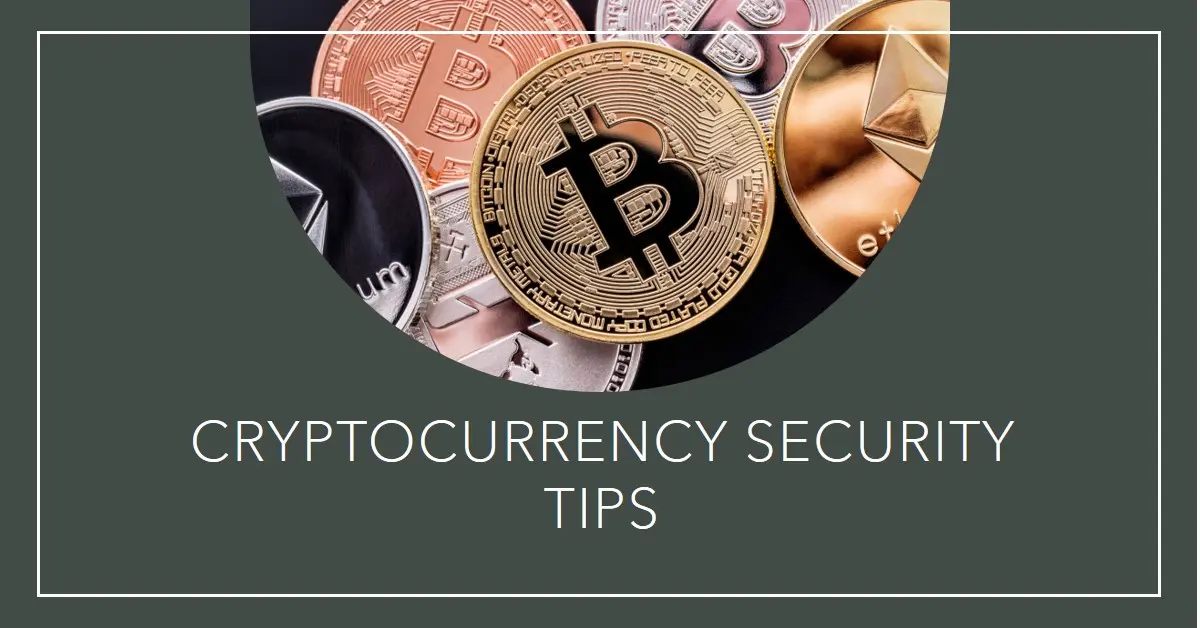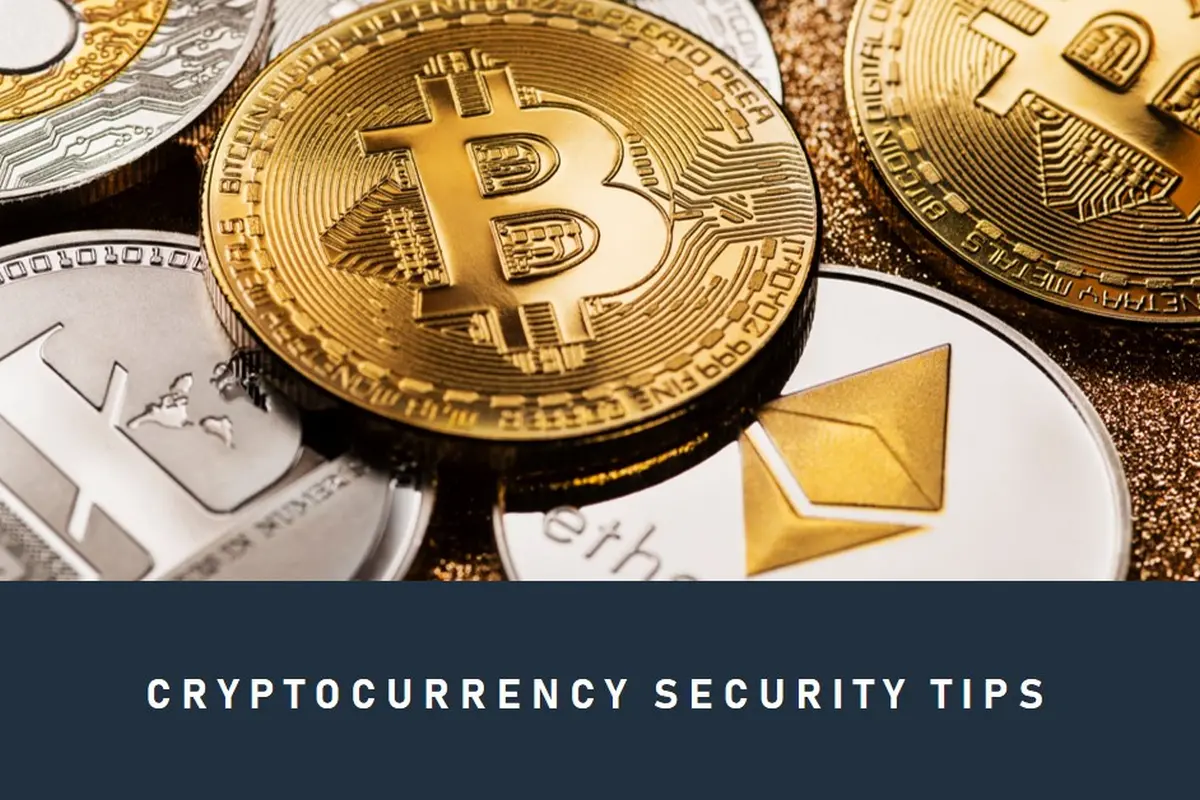Cryptocurrency Security Tips

Cryptocurrency Security Tips: Protecting Your Digital Assets with Essential Measures
With the increasing popularity of cryptocurrencies, it’s important to ensure that your digital assets are secure.
Hackers and scammers are always on the lookout for vulnerable targets, so it’s essential to take the necessary precautions to protect your investments.
In this article, we’ll be discussing some key cryptocurrency security tips that you can follow to keep your assets safe.
- Use strong and unique passwords
One of the most basic yet effective security measures that you can take is to use strong and unique passwords for all your online accounts.
This includes your cryptocurrency exchanges and wallets. A strong password should be at least eight characters long and contain a mix of letters, numbers, and special characters.
Avoid using common words or phrases, and don’t use the same password for multiple accounts.
If you have trouble remembering all your passwords, consider using a password manager.
These tools allow you to store all your passwords in a secure, encrypted manner and access them with a single master password.
This way, you only need to remember one password, while the password manager takes care of the rest.
- Enable two-factor authentication (2FA)
Two-factor authentication (2FA) is an additional layer of security that requires you to provide a second form of authentication in addition to your password.
This can be a code sent to your phone via SMS, a code generated by an authenticator app, or a biometric factor like your fingerprint or facial recognition.
Enabling 2FA adds an extra layer of protection to your accounts, as it makes it harder for hackers to gain access even if they manage to guess or steal your password.
Most reputable exchanges and wallets offer 2FA as an option, so be sure to enable it if it’s available.
- Use a hardware wallet
A hardware wallet is a physical device that stores your private keys in an offline, secure manner. This makes it much harder for hackers to access your keys, as they would need to physically steal your hardware wallet in order to do so.
Hardware wallets are an excellent choice for storing large amounts of cryptocurrency, as they offer a high level of security. Some popular hardware wallet options include the Ledger Nano and Trezor.
- Be wary of phishing attacks
Phishing attacks are a common tactic used by hackers to trick people into revealing their login credentials or private keys.
These attacks often take the form of fake emails or websites that look like legitimate exchanges or wallets but are actually designed to steal your information.
To protect yourself against phishing attacks, be sure to only visit the official websites of exchanges and wallets and double-check the URL to ensure it’s correct.
Don’t click on any links or enter your login details if you’re not sure if the website is legitimate.
- Use a secure connection
Whenever you’re accessing your cryptocurrency accounts or making transactions, be sure to use a secure connection.
This means using a virtual private network (VPN) to encrypt your internet connection or connecting to a secure, trusted Wi-Fi network.
Avoid using public Wi-Fi networks, as these can be easily compromised by hackers. If you must use a public Wi-Fi network, be sure to use a VPN to protect your connection.
- Keep your software up to date
Another important security measure is to keep your software up to date.
This includes your operating system, browser, and any wallets or exchanges you use.
Software updates often include security fixes, so it’s important to stay current to ensure that your system is as secure as possible.
- Use a cold storage solution
If you’re planning on holding your cryptocurrency for the long term, consider using a cold storage solution.
Cold storage refers to keeping your private keys offline, typically on a hardware device such as a USB drive or paper wallet.
This removes the risk of your keys being hacked or stolen, as they are not connected to the internet.
To use cold storage, you’ll need to transfer your cryptocurrency from an online exchange or wallet to the cold storage device.
This process is known as “withdrawing” or “transferring out.” Be sure to follow the instructions provided by your cold storage solution carefully, as any mistakes could result in the loss of your assets.
- Use a multi-sig wallet
A multi-sig wallet requires more than one signature or approval in order to complete a transaction.
This can be useful in situations where you want to share access to your wallet with multiple people, such as in a business setting.
To use a multi-sig wallet, you’ll need to set up multiple private keys and decide on a threshold for the number of signatures required to complete a transaction.
For example, you could set up a 3-of-5 wallet, which requires any three out of five keys to sign off on a transaction.
- Don’t share your private keys
Your private keys are the keys to your cryptocurrency kingdom, so it’s important to keep them safe and secure.
Never share your private keys with anyone, and don’t leave them lying around where others could access them.
If you need to share access to your wallet with someone, consider using a multi-sig wallet as mentioned above. This allows you to share access without actually revealing your private keys.
Finally, it’s important to use reputable exchanges and wallets to store and trade your cryptocurrency.
Do your research and choose a platform that has a good track record of security and customer service.
Look for exchanges and wallets that offer 2FA and other security measures, and be sure to read reviews and check out forums to get a sense of what others think of the platform.

Conclusion
By following these cryptocurrency security tips, you can help protect your digital assets and ensure that your investments are safe.
Remember to use strong and unique passwords, enable 2FA, use a hardware wallet, be wary of phishing attacks, use a secure connection, keep your software up to date, use a cold storage solution if necessary, consider using a multi-sig wallet, and always use reputable exchanges and wallets.
By taking these precautions, you can help keep your cryptocurrency secure.







